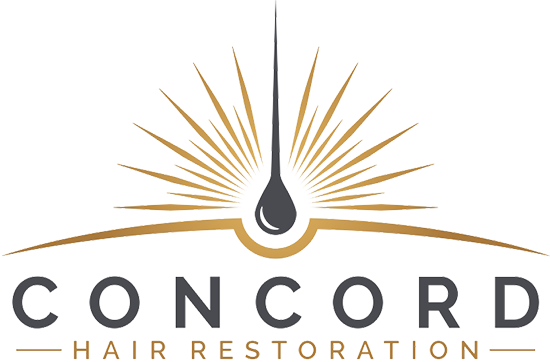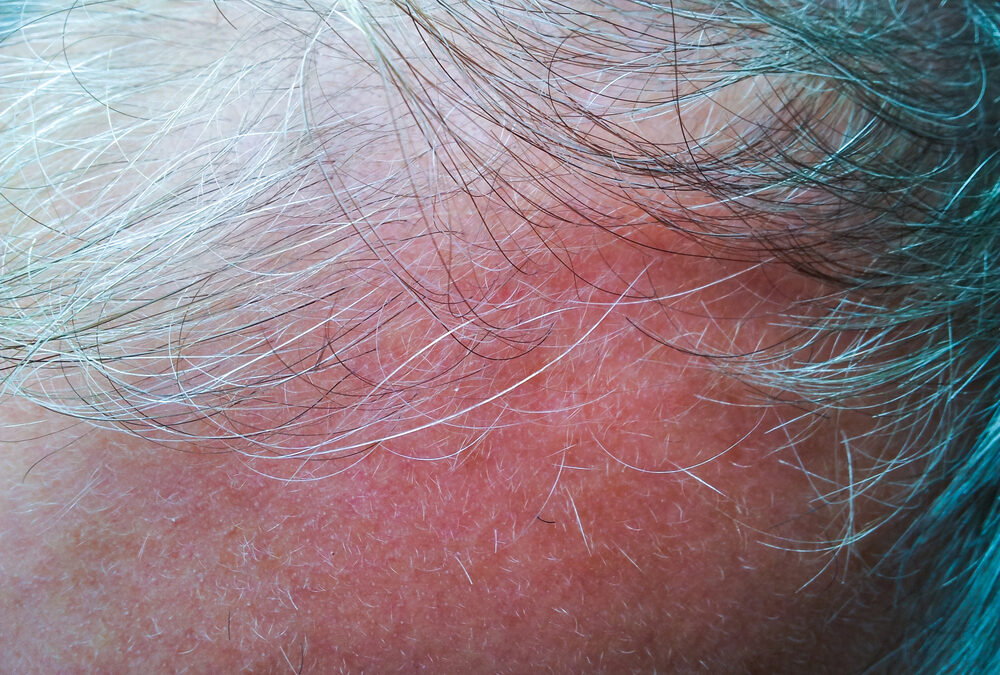Hair Loss and Aging: Understanding the Journey and Embracing Solutions (Here at Concord Hair Restoration, Los Angeles)
At Concord Hair Restoration, we understand that aging is a beautiful journey, but it can also bring changes to our bodies, including hair loss. While it’s a common concern, we believe knowledge is power. Here, we’ll delve into the science of aging and hair loss, explore ways to manage it effectively, and even touch on exciting future trends in hair restoration.
The Intricacies of Hair Growth: Understanding the Cycle
Hair growth follows a fascinating cycle with three distinct phases:
- Anagen (Growth Phase): The star of the show! This is where the magic happens, lasting anywhere from 2-7 years. During this time, hair follicles are in overdrive, rapidly dividing cells to produce the hair we see.
- Catagen (Transition Phase): Think of it as the winding down period, lasting about 2-3 weeks. Hair growth slows as the follicle prepares to shed the current hair and make way for a new one.
- Telogen (Resting Phase): Here, hair growth comes to a complete halt for roughly 3 months. The old hair eventually detaches, making space for a new strand to begin its growth cycle in the anagen phase again.
How Aging Affects this Hair Growth Symphony
As we age, the conductor of this hair growth symphony changes its tune a bit. Here’s what you might experience:
- Slower Growth Rate: The anagen phase tends to shorten, meaning hair spends less time actively growing. This can lead to a decrease in overall hair length and density.
- Reduced Hair Density: Hair follicles may even decide to take a permanent break, resulting in fewer hairs growing and a thinner head of hair.
- Changes in Texture: The quality of the hair itself can transform, becoming finer, drier, and more susceptible to breakage.
Common Types of Hair Loss We See with Aging
Hair loss with aging can manifest in several ways:
- Androgenetic Alopecia (Male/Female Pattern Baldness): This hereditary condition causes a gradual thinning and receding hairline in men and a widening part or diffuse thinning on top in women.
- Telogen Effluvium: This temporary condition triggers a large number of hair follicles to enter the resting phase simultaneously, leading to a noticeable increase in shedding. Stress, illness, or certain medications can be culprits.
- Alopecia Areata: An autoimmune disorder causing patchy bald spots. Your immune system mistakenly attacks healthy hair follicles, resulting in sudden hair loss.
Causes of Hair Loss in Aging Individuals: Beyond the Aging Process
While aging plays a role, other factors can contribute to hair loss:
- Hormonal Changes: Fluctuations in hormones like androgens, especially during menopause or with decreased testosterone levels in men, can disrupt the hair growth cycle.
- Nutritional Deficiencies: A lack of essential nutrients like iron, vitamin D, and protein can weaken hair and accelerate shedding.
- Medical Conditions: Underlying health issues like thyroid disorders, diabetes, and autoimmune diseases can impact hair health.
- Medications: Certain medications for blood pressure, arthritis, or depression can have hair loss as a side effect.
Signs and Symptoms of Hair Loss: Don’t Ignore the Clues
Hair loss doesn’t always happen overnight. Here are some signs to watch for:
- Gradual Thinning on Top of the Head: This is a common pattern, especially in men.
- Circular or Patchy Bald Spots: Sudden appearance of small, coin-sized bald patches can indicate Alopecia Areata.
- Sudden Loosening of Hair: More hair than usual coming out when combing or washing can be a sign of telogen effluvium or a reaction to stress.
Getting a Diagnosis: Taking the First Step Towards Solutions
If you’re concerned about hair loss, early diagnosis is key. Here’s what a doctor might do:
- Medical History and Physical Examination: A detailed discussion of your health and a thorough examination of your scalp can provide valuable clues.
- Scalp Biopsy: In some cases, a small sample of scalp tissue is examined under a microscope to rule out underlying conditions.
- Blood Tests: Blood tests can identify deficiencies or hormonal imbalances that might be contributing to hair loss.
Preventive Measures: Taking Charge of Your Hair Health
Exercise: Get Your Blood Flowing
Regular exercise is a fantastic way to boost overall health, and that includes your hair. Physical activity helps improve blood circulation, ensuring your hair follicles receive the essential nutrients and oxygen they need to thrive. Aim for at least 30 minutes of moderate-intensity exercise most days of the week.
Stress Management: Unwind and Recharge
We all know that stress can take a toll on our bodies, and your hair is no exception. Chronic stress can contribute to hair loss, so finding healthy ways to manage it is crucial. Incorporate relaxation techniques like meditation, yoga, or deep breathing into your daily routine.
Effective Treatments: Finding Your Solution
While prevention is key, there are also effective treatments available to address hair loss:
Topical Treatments: Easy Application, Potential Results
- Minoxidil: This over-the-counter solution is commonly used to stimulate hair growth. It’s applied directly to the scalp and can help slow down hair loss and promote regrowth in some individuals.
- Other Topical Options: There are a variety of other topical treatments available, including those containing ingredients like finasteride or ketoconazole. Consulting with a dermatologist can help you determine the best option for your specific needs.
Oral Medications: Systemic Support for Hair Health
- Finasteride: This prescription medication is primarily used to treat male pattern baldness. It works by inhibiting the production of dihydrotestosterone (DHT), a hormone that contributes to hair loss.
- Other Oral Treatments: Depending on the underlying cause of your hair loss, your doctor may prescribe other medications, such as those used to address hormonal imbalances or autoimmune conditions.
Hair Transplant Surgery: A Lasting Solution
For individuals with more advanced hair loss, hair transplant surgery can be a transformative option. At Concord Hair Restoration, we specialize in advanced hair transplant techniques that deliver natural-looking results.
Our Hair Transplant Process:
- Consultation: During a comprehensive consultation, we assess your hair loss, discuss your goals, and develop a personalized treatment plan.
- Harvesting: We carefully extract hair follicles from a donor area, typically the back of the head, using state-of-the-art techniques.
- Implantation: Our skilled surgeons create natural-looking hairlines and distribute the transplanted hair follicles to the thinning or balding areas.
- Recovery and Results: With minimal downtime, you can expect to see gradual hair growth over several months.
Natural Remedies: Harnessing Nature’s Power
While not a cure-all, some natural remedies may help support hair health:
- Essential Oils: Certain essential oils, such as rosemary and peppermint, have been shown to stimulate hair growth when applied topically.
- Herbal Supplements: Some herbal supplements, like saw palmetto and biotin, are often used to promote hair growth. However, it’s essential to consult with your doctor before starting any new supplements.
- Scalp Massage: Massaging your scalp can improve blood circulation and stimulate hair follicles.
Lifestyle Changes for Healthier Hair
In addition to treatments, incorporating these lifestyle changes can benefit your hair:
- Gentle Hair Care: Avoid harsh chemicals, excessive heat styling, and tight hairstyles that can damage your hair.
- Balanced Diet: Ensure you’re getting enough vitamins and minerals that support hair health, such as iron, zinc, and biotin.
- Adequate Sleep: Getting enough restful sleep is essential for overall well-being, including hair health.
The Psychological Impact of Hair Loss
Hair loss can significantly impact self-esteem and confidence. It’s important to remember that you’re not alone, and there are resources available to help you cope.
- Support Groups: Connecting with others who are experiencing hair loss can provide valuable emotional support and practical advice.
- Professional Counseling: If you’re struggling to cope with the emotional impact of hair loss, consider seeking professional counseling.
The Future of Hair Restoration: Exciting Developments on the Horizon
We’re constantly staying at the forefront of hair restoration technology and research. Here’s a glimpse into the future:
- Stem Cell Therapy: Researchers are exploring the potential of stem cells to regenerate hair follicles.
- Gene Therapy: Advances in gene therapy may offer targeted solutions for specific types of hair loss.
- Non-Surgical Options: We anticipate continued development of non-surgical treatments that provide effective and long-lasting results.
Are you experiencing hair loss and looking for solutions?
Concord Hair Restoration in Los Angeles is here to help. With our expertise in hair transplants and advanced treatments, we can restore your confidence and help you achieve the hair you deserve. Contact us today for a complimentary consultation and discover the difference Concord Hair Restoration can make

